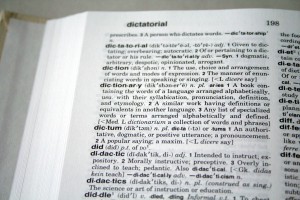What’s the Difference Between an “Active UCC Filing” and an “Effective UCC Filing?”
UCC, Due Diligence, Revised Article 9 The Uniform Commercial Code contains many terms and phrases that are esoteric to the commercial lending industry—they have a very specific meaning within the code. The definition can be crucial to your due diligence efforts, so it’s important to know the difference. One instance we’ve come across is the difference between an “active UCC filing” and an “effective UCC filing,” which can have an affect on your due diligence. First, let’s cover the definitions.
The Uniform Commercial Code contains many terms and phrases that are esoteric to the commercial lending industry—they have a very specific meaning within the code. The definition can be crucial to your due diligence efforts, so it’s important to know the difference. One instance we’ve come across is the difference between an “active UCC filing” and an “effective UCC filing,” which can have an affect on your due diligence. First, let’s cover the definitions.
- Active Filing: The filing is indexed and discoverable within a jurisdiction’s searchable indexes.
- Effective Filing: The filing is sufficient to perfect a security interest according to Revised Article 9 standards.
For a UCC-1 to be considered an effective filing it must meet the following criteria:
- Filed in the correct jurisdiction
- Not lapsed or terminated
- Conditions of creating a security interest are met
- Minimum filing standards for UCC-1 are followed
The key point is that not all active filings are effective filings. Since RA9 has been implemented, a UCC-1 is usually displayed in a filing office as active until one or more years past the lapse date, regardless of termination. Many filing offices will purge filings after the one year cushion after the lapse date. If a UCC-1 has been properly terminated, it would of course not be considered an effective filing. The status of an effective filing is not determined by UCC searchers, and can often only be interpreted by a court.
As always, if you are unsure of any definitions or procedures, consult your legal counsel immediately.

3 thoughts on “What’s the Difference Between an “Active UCC Filing” and an “Effective UCC Filing?””